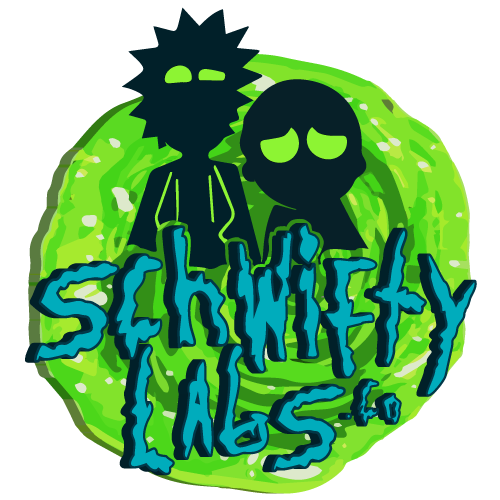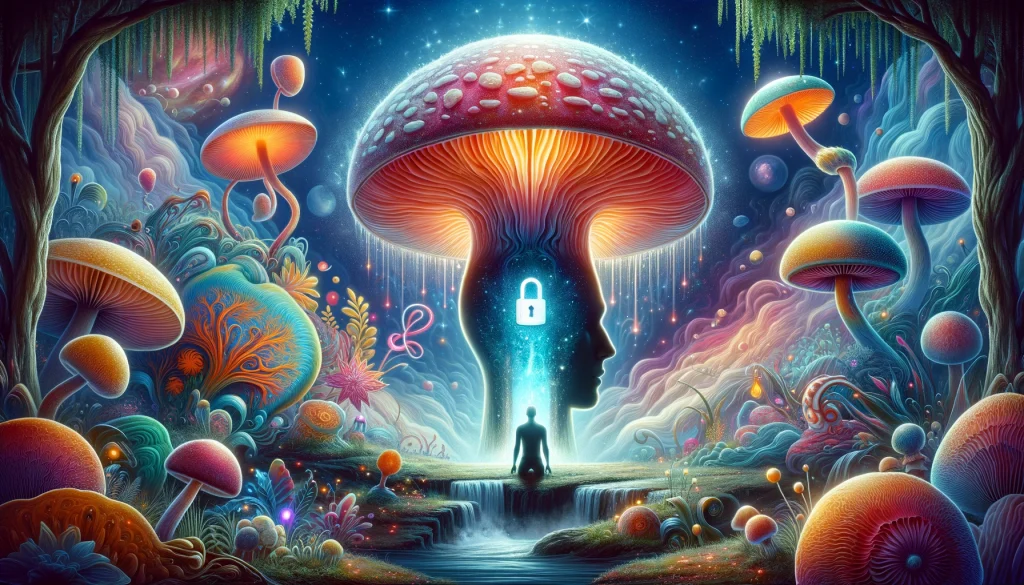CBD, LSD, Magic Mushrooms
THC vs. Psilocybin: Overlapping Pathways to Altered Awareness
Cannabis and psilocybin mushrooms have both been used for centuries as tools for shifting consciousness, healing, and exploring altered states of awareness. While they are distinct substances with different chemical structures and cultural histories, both interact with the brain in ways that expand perception, change emotional states, and reframe our relationship with time and self. Comparing THC and psilocybin reveals not only their differences, but also fascinating overlaps in how they guide users toward altered awareness.
The Basics of THC and Psilocybin
THC (tetrahydrocannabinol) is the primary psychoactive compound in cannabis. It binds primarily to CB1 receptors in the endocannabinoid system, influencing memory, attention, mood, and sensory perception. Its effects vary with dose, strain, and user tolerance, ranging from relaxation and euphoria to time distortion and heightened creativity.
Psilocybin, on the other hand, is a naturally occurring psychedelic found in certain mushroom species. Once ingested, psilocybin converts into psilocin, which binds to serotonin 5-HT2A receptors in the brain. This interaction creates profound alterations in perception, sense of self, and spiritual awareness. Users often describe visuals, mystical experiences, and deep emotional insights.
Shared Ground: Expanded Perception
One major overlap between THC and psilocybin lies in how they expand sensory and cognitive awareness.
- Heightened Sensory Experience: Both substances can intensify colors, sounds, textures, and tastes. Music often feels richer, food more flavorful, and nature more alive under their influence.
- Distorted Time Perception: Cannabis users often report minutes feeling like hours, while psilocybin users may feel as though they’ve stepped outside of linear time altogether.
- Emotional Amplification: Both can deepen emotional experiences, whether it’s laughter, empathy, or introspection. For some, this opens the door to creative breakthroughs and healing insights.
Divergence in Depth and Intensity
Despite similarities, THC and psilocybin diverge in how profoundly they alter consciousness.
- Cannabis and THC: Generally produces a lighter, more manageable shift. While strong doses can cause paranoia or dissociation, cannabis typically allows users to stay tethered to everyday reality. Its effects are dose-dependent and often short-lived.
- Psilocybin: Frequently produces profound, immersive experiences. At moderate to high doses, it can dissolve the sense of self, leading to ego death or mystical states. These journeys can last several hours and are often described as life-changing.
Brain Pathways: Endocannabinoid vs. Serotonin
The neurochemical differences highlight the distinct pathways of these substances:
- THC and the Endocannabinoid System: By mimicking anandamide (the body’s natural “bliss molecule”), THC affects mood, stress response, and sensory processing. This system plays a key role in regulating balance and homeostasis in the body.
- Psilocybin and the Serotonin System: Psilocin’s activity at serotonin receptors influences not just mood but also cognition and perception. Brain scans show psilocybin temporarily reduces activity in the brain’s “default mode network” (DMN), which governs our sense of self. The quieting of the DMN is linked to the dissolving of ego boundaries and heightened connectivity across brain regions.
Therapeutic Potential: Shared and Unique
Both THC and psilocybin are being studied for their therapeutic benefits, often overlapping in areas such as mood regulation and anxiety relief.
- THC: May help reduce pain, anxiety, and insomnia. Its relaxing and euphoric effects are widely used for stress management.
- Psilocybin: Shows promise in treating depression, PTSD, and end-of-life anxiety. Clinical trials suggest psilocybin-assisted therapy can produce lasting changes in mental health after only a few sessions.
- Shared Role in Creativity and Introspection: Both can foster creative thinking, empathy, and new perspectives, making them valuable in personal growth and problem-solving.
Risks and Considerations
While both substances can open doors to altered awareness, they carry risks that should not be ignored.
- THC Risks: High doses may cause anxiety, paranoia, or short-term memory issues. Dependency can develop with frequent use.
- Psilocybin Risks: Though non-addictive, it can lead to overwhelming or frightening experiences, particularly without preparation or safe setting. Individuals with certain mental health conditions should exercise caution.
- Set and Setting: For both, environment and mindset play a critical role in shaping the experience. Supportive surroundings and responsible use enhance benefits while reducing risks.
Bridging Two Pathways
What unites THC and psilocybin is their ability to momentarily lift us out of ordinary awareness. THC does this gently, often enhancing the present moment and sensory experience. Psilocybin, meanwhile, has the power to dissolve old patterns of thought and open the mind to entirely new dimensions of awareness.
Together, they illustrate the brain’s extraordinary plasticity and its ability to create multiple realities depending on chemistry, context, and consciousness.
Conclusion
Cannabis and psilocybin represent two overlapping yet distinct routes to altered awareness. THC primarily works through the endocannabinoid system to enhance sensory perception and shift time, while psilocybin works through serotonin receptors to dissolve ego boundaries and expand consciousness. Both offer opportunities for insight, creativity, and healing—provided they are approached with respect and responsibility.
In comparing them, we see that while THC may gently stretch the boundaries of everyday reality, psilocybin has the potential to completely transform it. Both remind us that human consciousness is flexible, mysterious, and far richer than everyday perception allows.

